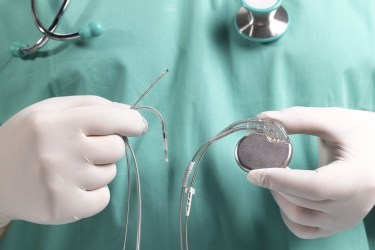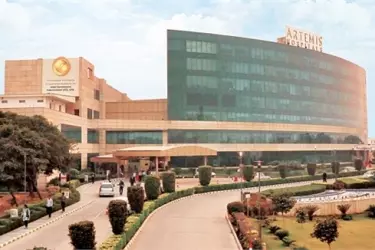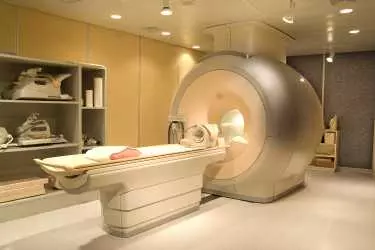ICD or Implantable Cardioverter Defibrillator is also a kind of pacemaker. ICD is also used to treat irregular heart rate or people who have suffered a cardiac arrest. Though there is one difference between ICD and Pacemaker, whereas a heart pacemaker is used to treat patients with low heart rate ICD is used for patients with both high and low heart rate. ICD serves the dual purpose by improving the low heart rate and controling high heart rate. ICD is about the size of a stopwatch and is implanted under the skin just below the collarbone. It consists of a pulse generator and wires called leads.
The ICD responds to irregular life-threatening heart rhythms from the lower chambers of the heart with pacing that corrects a fast rhythm and promotes a normal heartbeat or a shock (defibrillation) that resets the heart rhythm to prevent sudden cardiac arrest. An ICD also records and stores information about your heart rhythm and therapies delivered by the ICD for your doctor to review.
ICD is a combo device unlike pacemaker that only works one way by increasing the low heart rate. ICD does following function in case of irregular heart rate:
 Pacing – a series of low-voltage electrical impulses (paced beats) at a fast rate to try and correct the heart rhythm.
Pacing – a series of low-voltage electrical impulses (paced beats) at a fast rate to try and correct the heart rhythm.
 Cardioversion –one or more small electric shocks to try and restore the heart to a normal rhythm.
Cardioversion –one or more small electric shocks to try and restore the heart to a normal rhythm.
 Defibrillation – one or more larger electric shocks to try and restore the heart to a normal rhythm.
Defibrillation – one or more larger electric shocks to try and restore the heart to a normal rhythm.

The heart has its own electrical system that regulates the heartbeat. With every heartbeat an electrical signal is sent through your heart that causes contraction and pumping of blood. If this doesn’t happen properly then it may lead to an abnormal heart rhythm (or arrhythmia). In such a secnario our cardiologist Dr Sandeep Parekh at Arogya Heart Centre, Kharar and Shalby Hospital Mohali in Punjab may recomend implantation of an ICD.
Dr Sandeep Parekh may advise implantation of an ICD device in following cases:
 Person had a life-threatening abnormal heart rhythm and are at risk of having it again.
Person had a life-threatening abnormal heart rhythm and are at risk of having it again.
 Tests show that person is at risk of having an abnormal heart rhythm due to genetic reasons in future.
Tests show that person is at risk of having an abnormal heart rhythm due to genetic reasons in future.
 Person is in a heart failure and is at risk of developing a life-threatening heart rhythm.
Person is in a heart failure and is at risk of developing a life-threatening heart rhythm.
 A history of coronary artery disease and a heart attack that has weakened the heart.
A history of coronary artery disease and a heart attack that has weakened the heart.
 An enlarged heart muscle
An enlarged heart muscle
 A genetic heart condition that increases the risk of dangerously fast heart rhythms such as some types of long QT syndrome.
A genetic heart condition that increases the risk of dangerously fast heart rhythms such as some types of long QT syndrome.
An ICD is generally advised by Dr Sandeep Parekh at Indus Hospital, Dera Bassi, Chandigarh in Punjab for people who are at high risk of cardiac arrest due to a ventricular arrhythmia. This includes people with heart failure who have problems with the contraction of the heart such as abnormal Left Ventricular Ejection Fraction (LVEF is mentioned in your 2D echocardiography report).
Cost of ICD Implant surgery is more expensive than a simple heart pacemaker surgery. The reason in the difference between the two surgeries is due to the cost of ICD Implant. Also you would appreciate that the type of ICD implant used varies from patient to patient. A person who is already in heart failure would need a different ICD implant than a person who is just having issues with abnormal heart rhythm. Dr Sandeep Parekh in Mohali Punjab and Dr D K Jhamb in Gurgaon performs the ICD Implant surgery regularly in India. The procedure is performed by the team of interventional cardiologist. The cost of ICD Implant surgery at Indus Hospital, Dera Bassi in Chandigarh, Punjab under Dr Sandeep Parekh would cost approximately INR 8 Lacs to 14 Lacs depending upon the type of ICD implant used and the same would cost about 12 Lacs to 18 lacs in Gurgaon in India.
You would need to regularly consult cardiologist or heart specialist after your procedure which you can do either at the Hospital or online consultation on phone by sending your reports through whatsapp on the number +91-8800188334 / 8800188335.

Our hospitals are located in the northern part of India specially in the NCR region comprising New Delhi, Gurgaon, Noida and Faridabad which all are within a distance of 20-50 kms from the New Delhi airport. Our hospitals are super specialty in the fields of Neurosurgery, Cardiology, Joint Replacement, Cancer Care, Liver and Kidney Transplants, Cosmetic Surgery and many other branches of medicine. All our hospitals offer quality treatment and are accreditated by NABH or JCI. For patients coming from other countries our team members would receive you at the airport and escort you to the hospital or the hotel as the case maybe.

We have the MRI, Low Radiation CT Scan, ,Digital X-Ray Bone Densitometry (DEXA), Mammography, Ultrasound, Colour Doppler, EEG, NCV, EMG, TMT, Echocardiography and the most advanced Pathology Lab which gives us the diagnostic confidence for providing the right treatment.
Modular fully equipped Operation Theatres with Computer Navigation and C-Arm backed by a state of art ICU helps us in providing world class treatment to our patients. We are equipped to handle the most complex of the surgeries due to the state of art cutting edge technology.

Our team of doctors include some of the best names from the Indian Medical Fraternity. Dr Arun Saroha Dr V.S.Mehta, Dr Vikas Kathuria, Dr Sandeep Vaishya in Neurosurgery, Dr Sumita Singh in Breast and Piles, Dr AK Sethi, Dr Anubhav Jain, Dr Subhash Jangid, Dr Debashish, Dr Anuj Chawla, Dr Ratnav Ratan, Dr Reetandyuti and Dr Praveen Tittal in Joints, Dr Priyanjana Sharma in ENT, Dr Kaushal Yadav, Dr Ankur Garg, Dr Shilpi Sharma, Dr Abhishek Mitra in Cancer Surgery, Dr Pramod Prasad, Dr Sumita Singh and Dr Vikram Singh in GI Laparoscopic Surgery, Dr Sadhna Sharma, Dr Anjali Kumar and Dr Parvinder Kaur in Obs, Gynae and Infertility, Dr Raman Tanwar and Dr Chandrakant Kar in Urology, Dr Sumita Singh for Pilonidal Sinus Surgery are some of the key doctors with us.
This patient in India was suffering from Diabetic Neuropathy but could not consult a Neurologist before 6 months so the patient came to India and recovered fully in just 15 days. Watch the video above to know the full story.
In this video you would see the patients from several countries sharing their experiences about treatment in Indian Hospitals for all kinds of conditions. Watch the video to know what to expect when you come to India.
This is the story of a Bangldeshi Patient who was shot in the neck in line of duty and got complete quadriplegia due to the injury. Watch the video to see the amazing recovery due to the treatment provided in India.